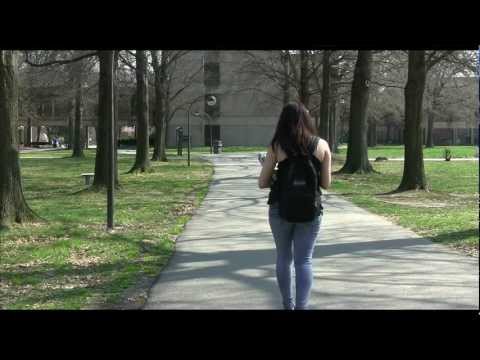ICE Out For Good Concludes Day One With Overwhelming Peaceful Actions
WASHINGTON — Today, peaceful protests and vigils kicked off the ICE Out For Good Weekend of Action to honor the lives lost at the hands of ICE, demand accountability, and make visible the human cost of this administration’s actions. The nonviolent, lawful, and community-led actions will continue tomorrow, Sunday, January 11, culminating in over 1,000 events throughout the weekend. You can find the list of events here.
ICE Out For Good is a broad, national coalition, including Indivisible, MoveOn Civic Action, the American Civil Liberties Union, Voto Latino, United We Dream, 50501, the Disappeared in America Campaign of the Not Above the Law coalition, and partner organizations across the country. All actions under the ICE Out For Good banner are grounded in moral witness, public accountability, and collective care. We remain committed to nonviolent organizing.
See coverage below from across the country on the first day of the ICE Out For Good Weekend of Action:
The Guardian: More than 1,000 events planned in US after ICE shootings in Minneapolis and Portland
USA Today: Where are ICE protests taking place this weekend? Here's what to know
Axios: ICE and Border Patrol shootings spark hundreds of weekend vigils and protests
CT Insider: Connecticut holds ICE protests Saturday in response to Renee Good shooting death
Knoxville News Sentinel: Hundreds gather in Knoxville to protest ICE shooting in Minneapolis
CBS Philadelphia: Philadelphia protesters want "ICE out for Good" after videos show agent killing woman in Minnesota
ABC11: North Carolina cities join nationwide anti-ICE protests after Minneapolis, Portland shootings
ABC7: ICE Out For Good rally in Sarasota
FOX5: Virginia protest against ICE as new video of MN shooting emerges
TCPalm: Group gathers in Stuart, Florida for 'ICE Out For Good' protest
AZ Central: Renee Good Nicole shooting spurs nationwide 'ICE out for Good' protests
Leaders from the partner organizations issued the following statements:
AMERICAN CIVIL LIBERTIES UNION
“The shootings in Minneapolis and Portland weren’t the beginning of ICE’s cruelty, but they must be the end. Today, we saw communities across the country gather peacefully to mourn the lives lost at the hands of ICE and to demand accountability. These protests are further proof that public opposition to ICE and this administration’s abuses is growing by the minute. Whether it's by joining a protest, attending a know your rights training, or demanding that our Congresspeople stop funding these out-of-control agencies, Americans across the country are saying “NO. Not on our watch.”
– Deirdre Schifeling, Chief Political and Advocacy Officer, ACLU
INDIVISIBLE
“Renee Nicole Good should be alive today. Her death has sparked grief and outrage across the country as the latest horrific incident in a mounting toll of enormous harm and horror caused by ICE. This weekend, people all over are coming together not just to mourn the lives lost to ICE violence, but to confront a pattern of harm that has torn families apart and terrorized our communities. We demand justice for Renee, ICE out of our communities, and action from our elected leaders. Enough is enough."
– Leah Greenberg, Co-Executive Director of Indivisible
POPULAR DEMOCRACY
“Every person ICE has killed had a family, a community, and a life that mattered. Pouring billions of public dollars into a rogue enforcement agency that terrorizes our communities while denying people health care, housing, food security, and education is morally indefensible and profoundly reckless. This cruelty flows directly from the agenda of fear and punishment pushed by extremists like Homeland Security Advisor Stephen Miller and Secretary of Defense Pete Hegseth, embraced and strengthened by the President himself. We demand accountability for the killing of Renee Nicole Good and for the countless lives lost at the hands of ICE. The lesson is clear: this violence will not stop until ICE is abolished.”
— DaMareo Cooper, Executive Director, Popular Democracy
50501
"This weekend's actions are prompted most immediately by the tragic death of Renee Good in Minneapolis, and her murder at the hands of ICE is unspeakable. We will uplift her this weekend, and we will uplift all those in our communities whom ICE has targeted and brutalized, from Silverio Gonzales to Marimar Martinez to all of those people in marginalized communities whose names must not be forgotten. This is our moment. We must conjure the souls of our brave ancestors and remember we stand on the shoulders of giants."
– Sarah Parker, 50501 Spokesperson and Executive Director, Voices of Florida Fund
MOVEON CIVIC ACTION
“For a full year, Trump’s masked agents have been abducting people off the streets, raiding schools, libraries, and churches. As ICE’s unnecessary, reckless, and escalatory deployment goes unchecked, the killing of civilians will only continue. None of us want to live in a country where federal agents with guns are lurking and inciting violence at schools and in our communities. This is why MoveOn members will be uniting once again this weekend in peaceful, nonviolent, powerful protests in stark contrast to the unrepentant, ruthless violence of this administration.”
– Katie Bethell, MoveOn Civic Action Executive Director
PUBLIC CITIZEN, NOT ABOVE THE LAW COALITION
“Masked, power-hungry federal agents are treating the streets of America like the Wild West. The intimidation tactics, the deadly attacks against our communities and the brazen lawlessness by immigration enforcement must stop now. As ICE and border patrol agents commandeer neighborhoods, people in detention centers, in ICE custody or simply in their own personal vehicles fear for their lives. This militarization of immigration enforcement is endangering everyone. What’s more alarming is the Department of Homeland Security, the vice president and president of the United States are endorsing ICE and CBP’s violent behavior. The Trump Administration must stop ICE deployment now, we must deeply investigate this unjust killing, and the American people must file peacefully into the streets to resist this illegal, overreaching use of government power. We must stand together to effectively defend ourselves.”
– Lisa Gilbert, co-president of Public Citizen and co-chair of the Not Above the Law Coalition which formed the Disappeared in America Campaign.
NDLON
“We immigrants know what authoritarian violence is. Many of us come from countries where we had to endure the kind of hatred and terror we saw in Minneapolis. Many of us fled brutal regimes to seek survival here.”
“We grieve for Renee Nicole Good and all the victims of this Administration's shameful and senseless brutality — the growing list of the dead and injured. But we are not just sorrowful. We are defiant. We, the people, will stand together against all efforts to dehumanize us, polarize us, terrorize us and kill us.”
“They want to provoke us into responding to violence with violence, to meet hate with hate. They are desperate to justify their cruelty with ever more brutality.”
“But we immigrants know how to confront authoritarianism. We will resist the government's attacks by building community, by documenting atrocities, by protesting nonviolently, by showing kindness and solidarity at all times. We will meet them in the streets, in the courts, at the day labor corners. We will meet them everywhere. And we will win.”
“We are not afraid or discouraged. And we will not be defeated. The more we stand together as a community of determination and love, the harder it will be for them to divide and destroy us.”
– Pablo Alvarado, Co-Executive Director of the National Day Laborer Organizing Network
THE WORKERS CIRCLE
“The tragic killing of Renee Good — a U.S. citizen exercising her fundamental rights — by a federal ICE agent is not just a catastrophic loss for her family and community; it is a stark warning to all of us about where unchecked power leads. This administration’s expanding use of force against our neighbors erodes the very rights and safety that define who we are as a nation. As a Jewish organization, we know what unchecked power has done in the past. We must not let that take root here, today. Now, more than ever, we must demand transparency, accountability, and policies that protect human life, human dignity and civil liberties for everyone. Allowing federal forces to act without independent oversight undermines justice and threatens the safety of us all.”
– Ann Toback, CEO, The Workers Circle
UNITED WE DREAM
“Using your first amendment rights to speak out and show up for your neighbors during the growing anti-immigrant violence in our cities should be a protected constitutional right, not a death sentence. This brutal killing is a horrifying reminder of the threat armed forces pose to our collective safety, especially at a time when local, state and federal officials have consistently called on the federal government to invest in the resources working families truly need —health care, housing, access to food— instead of indiscriminate terror in our communities. Billions poured into immigration raids for the sake of ripping apart communities in cities like Los Angeles, Chicago and Minneapolis does nothing but lead to irreparable damage, violence and death. In 2025 alone, 32 people died in immigration detention. We demand an immediate end to this cruelty and for elected leaders at every level to speak out in defense of immigrant communities and our shared safety.”
– United We Dream
VOTO LATINO
“Under Donald Trump’s leadership and Kristi Noem’s direction of the Department of Homeland Security, ICE has become more aggressive, more reckless, and more deadly — with 2025 marking its deadliest year in two decades. The killing of Renee Nicole Good, a U.S. citizen shot and killed by federal agents in Minneapolis, is not an isolated failure but the predictable outcome of a political agenda that rewards force and dehumanization.”
“Trump and Noem have normalized the erosion of constitutional rights, framing brutality as enforcement and accountability as weakness. Their rhetoric and policies have sent a clear message down the chain of command: push limits, ignore safeguards, and expect protection from consequences. This is not about partisan politics — it is about defending human life and the rule of law. We stand with Renee Nicole Good’s family and with communities nationwide to demand accountability and to stop the unchecked enforcement born of Trump and Noem’s leadership before more lives are lost.”
– Voto Latino





